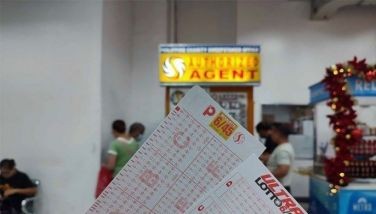Giving hope to the out-of-school youth

Last year, we introduced Go Negosyo’s newest program, Negosyo Mo, Bukas Ko (NMBK), a corporate social innovation thrust that benefits the out-of-school youth (OSY). Caroline Burns, head advisor of NMBK as well as trainer of OSYs enrolled in the program, enlightens us about the situation of OSYs today. A native of Scotland, Caro Burns has been in development work for almost 23 years and is an advocate of social entrepreneurship. She currently teaches social development and project management at the Entrepreneurs School of Asia, and is also currently the executive director at the Institute for Social Entrepreneurship Education.
What can you say about the state of the out-of-school youth in Philippines?
Out of 100 school age kids: 90 enroll in Grade 1; 40 graduate high school; 21 go to college; 12 graduate college; and only one is employed.
These statistics don’t paint an optimistic outlook for the long-term sustainability of the country, and until perhaps two months ago, I would have agreed that things look a bit grim. The out-of-school youth is potentially one of the most neglected groups in the country and most thinly spread in NGOs or government organizations. Organizations are focused on other groups that are apparently in more immediate need or in more imminent danger. So this group, aged 18-25 years, who are for all intents and purposes legally adults, are left drowning or clutching at straws for life opportunities with poor academic records to offer the work market.
The OSYs know their reality, perhaps they have known since they were children that their dreams may not be fulfilled and they, like their barkada, will join the circle of poverty like their parents before them.
If you asked me how do I see the state of the out-of-school youth in the Philippines? I see a group of young depressed men and women, desperately needing inspiration, and an opportunity to better their lives.
Why should we give attention to this situation, on top of other poverty-related issues in the country?
Domestically, the economy needs well-educated and skilled individuals who will enable the nation to not only participate in, but also regain its place within a competitive globalized market place. For almost a decade, the Philippines has experienced a severe brain drain where a great percentage of those who have been lucky enough to finish school or indeed college, have left the country to seek a better life for themselves and their family, and as a result the nation’s own basic sectors of education, health and employment are left flailing in the wind.
Today, more than one third of the Filipino population is living below the national poverty line (2006 est) and it is very apparent that the traditional methods of dealing with this chronic socio-economic problem have not and are not working. One out of every 100 OSYs gaining employment is a fact that we can no longer ignore or do nothing about. At its very core we have to ask ourselves, as a nation that advocates “the Filipino is worth dying for,” why are we in this situation?
Yes, local government units and NGOs do provide support and courses for the OSYs yet the pressure upon these young people are multi-lateral; poverty – education maybe free but some of the basic costs such as transportation or even a notebook are too much for most; child labor – it is often necessary that every member of the family contributes to its subsistence; bad peer pressure, bad vices, distant parents, poor teaching, or even laziness are all factors that, for the young mind, can dampen their aspirations and potentials to the point that they give up.
It is to my knowledge, and I apologize if I’m wrong, that there’s no government organization or NGO (other than one in Cebu) that directly focuses and specializes in addressing the complex needs of the out-of-school youth.
How can society in general help the OSY?
Society with a specific focus on the private sector can change the life opportunities of the OSY. For the most part, society can harshly misjudge the out-of-school youth as lazy, with no hope and (for boys) a group to potentially fear. I myself may have shared this view until a few weeks ago when I began giving training for transformation programs for a group of 24 OSYs in Escopa, Quezon City. Normally, in development work of this sort, there can be a 50 percent fall out rate, and yet, we have only lost four. The remaining participants, boys and girls, attend each session and show up early. They are highly-motivated and want to change their lives; they want to grab the opportunity that we are affording them; preparing them to change their outlook, behavior and participation in the world, to finishing their education and being an employed productive member of society.
The private sector is a pivotal component of the NMBK program, and indeed of the development of the OSY within Filipino society. Business can be used as a tool for deve-lopment, and when partnered with education, they form an unbeatable force for positive change, not only for the indivi-dual and their community, but also for wider society. Social entrepreneurship and social enterprises have been explo-ding across the globe and according to Nicholls in his book, “Social entrepreneurship: New models of sustainable social change” (Nicholls 2006), within Europe alone, more than 3.5 million jobs are provided by social enterprises. How many more are provided by social entrepreneurs!
The Negosyo Mo, Bukas Ko program may be the first of its kind, as we appeal to the hearts of entrepreneurs to help give worthy out-of-school youth a chance for a better life. NMBK aims to screen, train and transform the youth, who will then be matched with a partner entrepreneur/business and these OSYs will commit half of their income to a trust fund that will be used to finance their education.
* * *
Contact: [email protected].
- Latest
- Trending



























